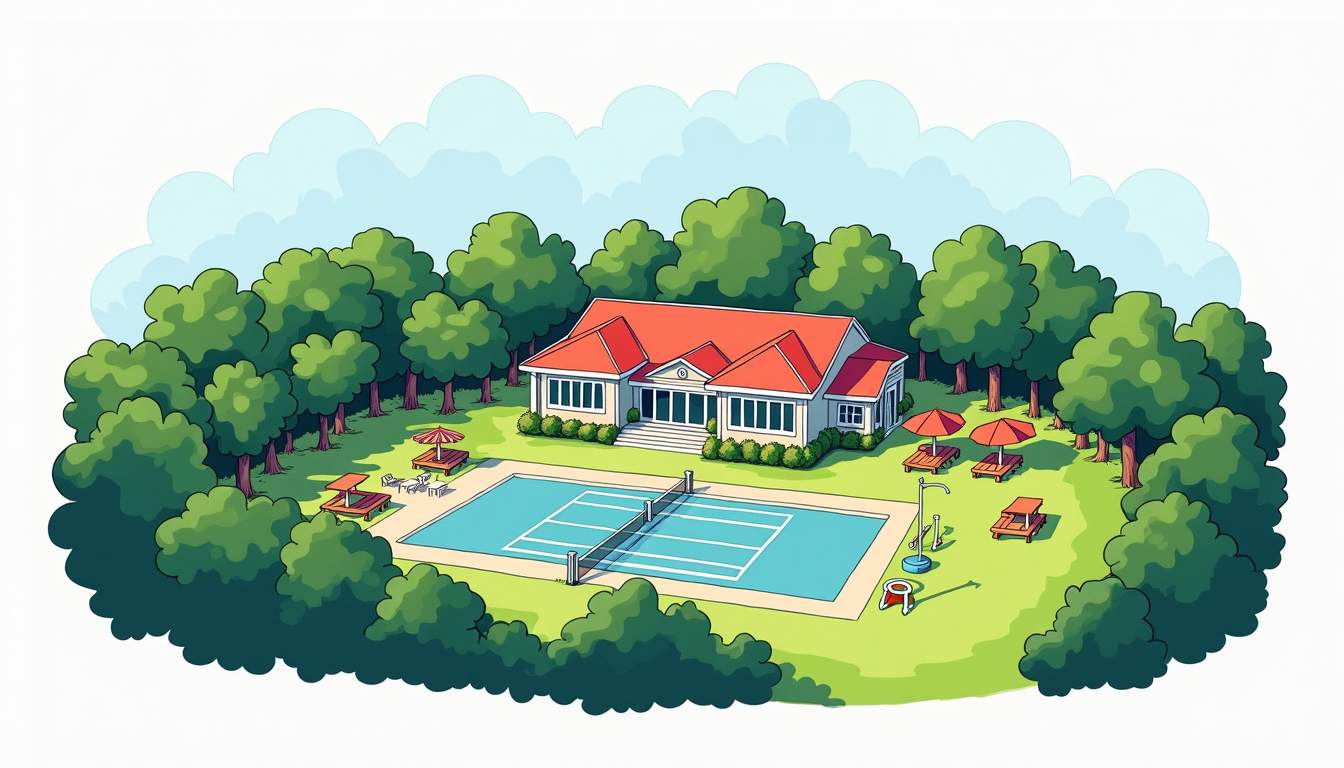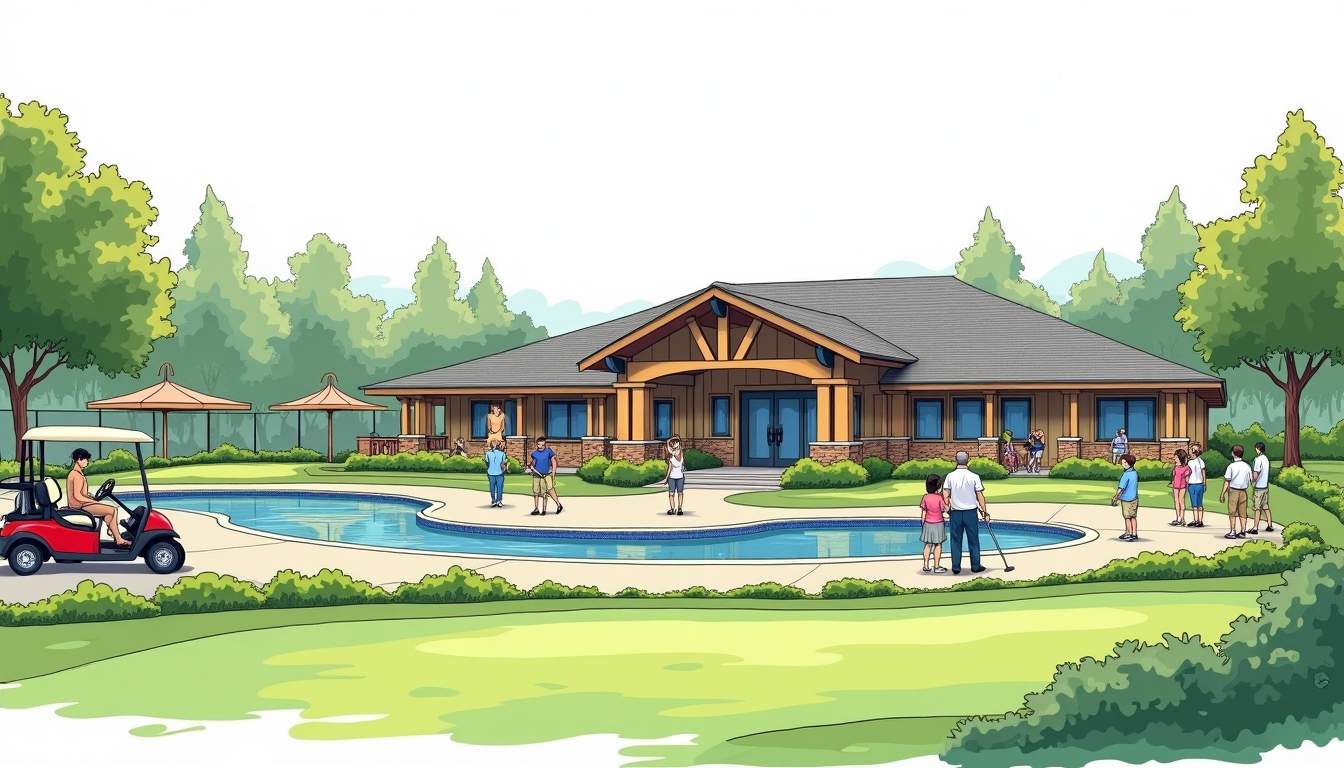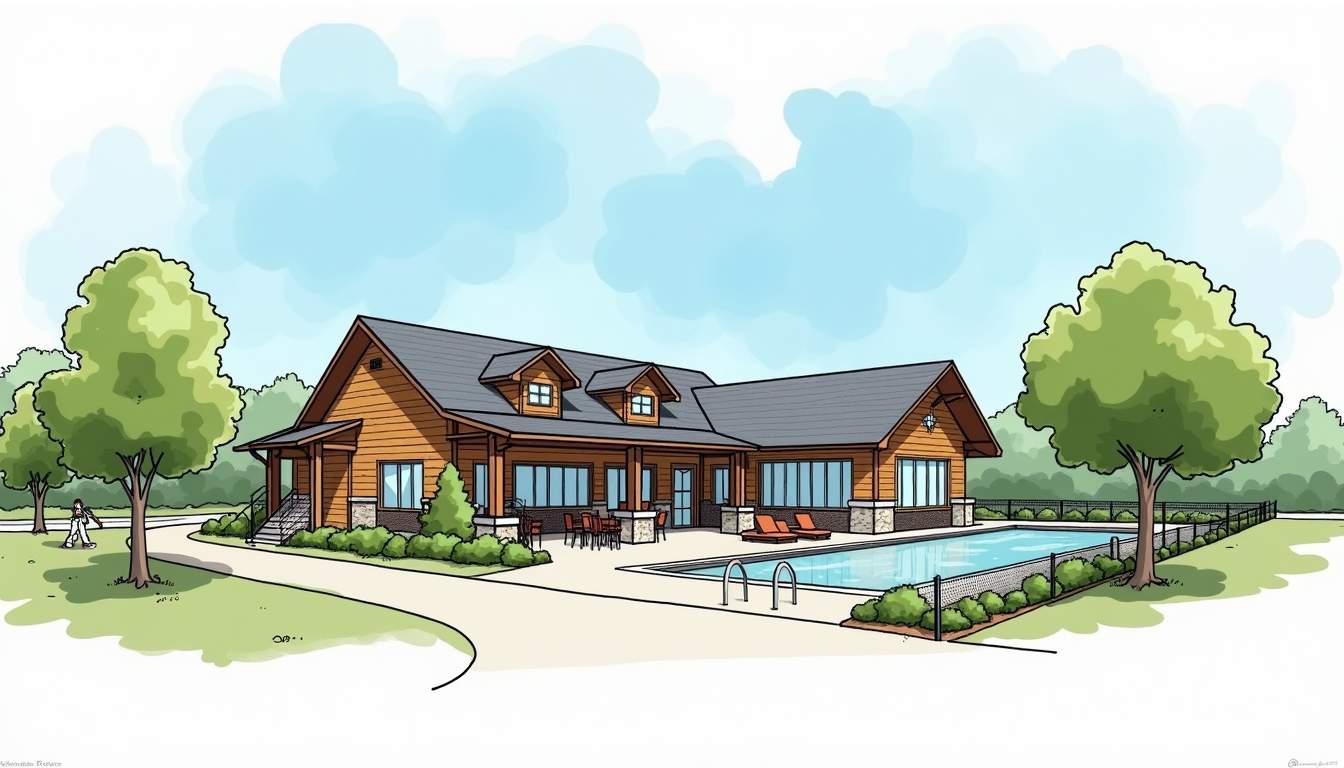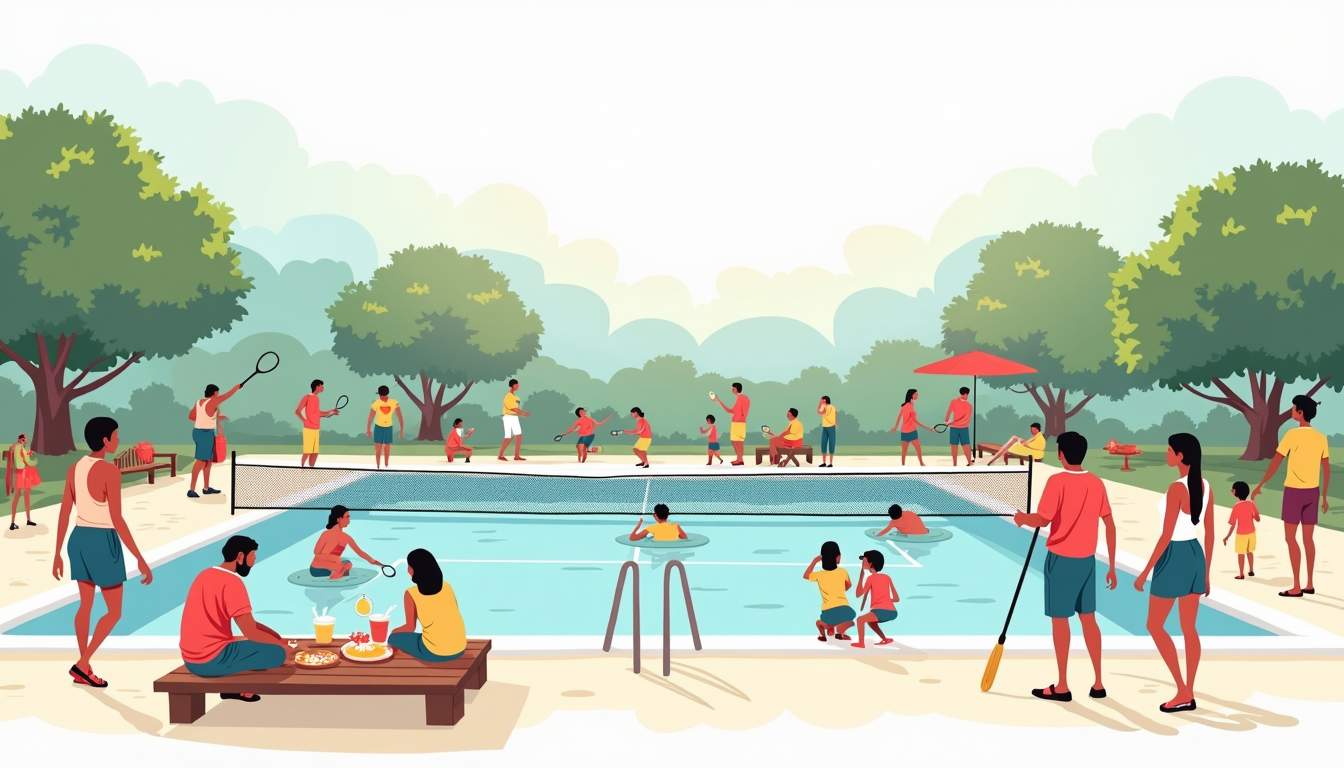
Tennessee National offers more than well-manicured greens and championship-caliber golf. The community clubs within this residential-golf community form the backbone of social life, providing members with opportunities for recreation, connection, and personal enrichment. From casual gatherings to organized events, these clubs contribute to a lifestyle that goes beyond the sport itself—fostering friendships, supporting wellbeing, and creating a meaningful sense of belonging.
Community clubs are the social infrastructure that transforms a neighborhood into a community. In a setting where residents share a common interest—frequenting the course, spending time at the clubhouse, or enjoying the outdoors—organized clubs create regular touchpoints for interaction. That structure turns acquaintances into friends and weekend rounds into lifetime memories.

Beyond creating social opportunities, these clubs serve practical functions. They coordinate events, advocate for resident interests, and provide forums for hobbies and causes that span generations. This active civic life enriches day-to-day living, raises property engagement, and supports a more cohesive neighborhood culture.
Many clubs also foster leadership development among residents by involving members in organizational roles, event planning committees, and volunteering opportunities. This participatory aspect empowers individuals to contribute meaningfully to their community, encouraging a sense of pride and ownership that extends beyond mere membership. As a result, these clubs often become the heartbeat of the neighborhood, driving positive initiatives and nurturing a spirit of collaboration across diverse groups.
Additionally, community clubs frequently partner with local businesses and service providers, enhancing residents’ access to exclusive offers, expert instruction, and specialized equipment. This symbiotic relationship not only benefits club members but strengthens the local economy and promotes sustainable growth within the residential area. Whether through sponsoring youth sports programs or environmental stewardship efforts, clubs help weave a richer social and economic fabric for the entire community.
Human wellbeing thrives on connection. Community clubs at Tennessee National make it easier to meet neighbors who share similar interests, whether that's golf, bridge, book clubs, or volunteer service. These regular encounters reduce social isolation and help residents build a local support network. For newcomers, clubs act as a natural introduction to community life; for longtime residents, they maintain continuity and engagement.
Activities organized by clubs span a wide range: tournaments and leagues, social mixers, educational workshops, charity fundraisers, themed dinners, and wellness classes. Each activity draws people together around a shared purpose, creating traditions that can endure for years and even generations. The variety of offerings means that participation is accessible, regardless of age, skill level, or interest.
Many clubs tailor events to celebrate seasonal milestones and holidays, infusing the community calendar with excitement and anticipation throughout the year. These special occasions not only deepen bonds among residents but also highlight the unique character of the community. Moreover, inter-club competitions and collaborative initiatives foster healthy competition and camaraderie, encouraging members to explore new interests and forge friendships across different social circles.
Innovative programs such as mentoring for junior golfers, arts and crafts workshops, and wellness challenges further diversify engagement opportunities. By constantly evolving activities to meet residents' interests and needs, community clubs ensure dynamic social ecosystems where everyone can find meaningful ways to participate and contribute.
Golf clubs at Tennessee National are often the most visible expression of community life, but their value extends far beyond competition and scores. They cultivate camaraderie, mentorship, and a sense of belonging that appeals to residents at many stages of life.
Membership in a golf club often opens additional social doors—group clinics, couples tournaments, juniors programs, and member-hosted events. These settings foster multi-generational interaction, where experienced players mentor beginners and families find shared activities.
Structured competition gives members goals to pursue and milestones to celebrate. Leagues, match play events, and club championships provide a framework for improving skills and measuring progress. At the same time, many clubs emphasize casual play and social rounds where the purpose is enjoyment rather than a low score. This balance keeps the club welcoming to newcomers and seasoned players alike.
Junior golf programs are a crucial feature of community clubs, offering youth instruction, team play, and character-building experiences. These programs encourage healthy outdoor activity and provide a positive social outlet. Families benefit when kids participate, as parents meet other families and find convenient ways to include children in community life.
Not every resident at Tennessee National is a golfer, and the community clubs reflect that diversity. A robust roster of non-golf clubs ensures there is something for everyone—arts and culture, fitness, culinary pursuits, civic engagement, and more. This variety enhances the overall appeal of the community and helps residents maintain a balanced, fulfilled lifestyle.

Non-golf clubs also provide creative outlets and opportunities for lifelong learning. Art workshops, photography groups, book clubs, and music nights stimulate the mind and promote personal growth. Meanwhile, wellness clubs that offer yoga, walking groups, or fitness classes contribute directly to physical health and stress reduction.
Culinary clubs bring people together through food—recipe exchanges, themed dinners, cooking demonstrations, and wine tastings. Hobby-based groups might focus on gardening, woodworking, or classic car appreciation, turning individual passions into shared experiences. These activities often culminate in community showcases or events that highlight member skills and provide a sense of accomplishment.
Volunteer clubs channel community energy into purposeful action. Whether supporting local schools, coordinating charity drives, or partnering with regional nonprofits, these groups extend the impact of Tennessee National beyond its borders. Participation in civic clubs fosters pride in the community and reinforces a collective responsibility for local wellbeing.
Community clubs contribute directly to physical and mental health by creating structured opportunities for activity and mindfulness. Wellness-focused groups are an essential part of an integrated lifestyle offering that encourages routine exercise, social interaction, and preventive care.
Fitness offerings at Tennessee National often include group classes that accommodate varied levels—low-impact options for older adults, cardio and strength training for active residents, and restorative practices like Pilates or tai chi. Group-based exercise encourages consistency and provides a social incentive to maintain healthy habits.
Walking clubs and outdoor activity groups take advantage of the community’s natural surroundings, offering scenic routes and safe, social exercise options. Regular walks promote cardiovascular health, lower stress, and provide a convenient, low-barrier way to meet neighbors. Seasonal hikes and nature walks can also appeal to those interested in local flora and wildlife.
Mindfulness clubs and meditation sessions offer tools to manage stress and improve emotional resilience. These sessions often combine gentle movement, breathing techniques, and guided relaxation to support mental health. When practiced in a group context, mindfulness becomes both an individual self-care practice and a shared communal activity that strengthens social bonds.
Signature events and recurring traditions give a community its rhythm. From holiday celebrations and seasonal festivals to member-hosted luncheons and charity galas, the events organized by community clubs sustain a vibrant calendar that residents look forward to year after year.
Traditions build generational continuity. Annual tournaments, themed parades, or a longstanding book club create memories that define a place. These rituals offer continuity for long-term residents while providing newcomers with immediate access to the community’s shared story.
Flagship events—such as a summer member-member tournament or a winter holiday ball—serve as focal points that bring the entire community together. These gatherings often include casual and competitive elements, ensuring broad appeal. Fundraising components can then amplify the positive impact, supporting local causes and club amenities.
Smaller gatherings, such as neighborhood potlucks or new-member meet-and-greets, can have a profound effect on cohesion. These intimate events enable deeper conversations and connections, laying the groundwork for stronger participation in larger community activities.
Strong clubs depend on engaged members and transparent governance. Volunteer leadership provides structure and direction, while committees manage programming, finances, and communication. When members are invited to take ownership, the clubs become more sustainable and responsive to community needs.
Open communication channels—newsletters, online groups, and regular meetings—help align clubs with resident interests and maintain healthy participation levels. Volunteer roles also serve as leadership development opportunities, helping residents build skills in event planning, fundraising, and community organizing.
Effective clubs actively recruit newcomers and offer flexible roles to accommodate varying levels of commitment. Short-term project teams, co-chair positions, and mentorship programs can make volunteering more accessible. Recognition—through awards, public acknowledgments, or social perks—helps retain active volunteers and celebrates contributions.
Sound financial practices are necessary for long-term viability. Membership dues, event fees, sponsorships, and fundraising initiatives all contribute to a club’s budget. Transparent budgeting and strategic spending on amenities, programming, and outreach ensure that clubs continue delivering value to residents without imposing undue financial strain.
Community clubs at Tennessee National contribute tangibly to the attractiveness of the neighborhood. Prospective buyers often seek lifestyle amenities and a sense of community as much as physical features like home size or lot location. Active clubs signal a socially vibrant community, which can enhance perceived value and marketability.
Well-run clubs also maintain amenities—clubhouses, meeting spaces, fitness facilities—that add convenience and enjoyment for residents. These shared resources extend living spaces beyond the home and foster daily interactions that elevate the overall quality of life.
Clubs play a role in attracting new residents who value community engagement and convenience. For current residents, vibrant programming and accessible social opportunities help retain people who might otherwise drift away. A thriving club ecosystem creates a feedback loop that supports stable property values and resident satisfaction.
Expectations for communal amenities continue to rise. Communities that invest in diverse club offerings position themselves favorably in the housing market. These investments signal thoughtful planning and a commitment to lifelong living, appealing to a wide range of buyers from young families to active retirees.
Community clubs at Tennessee National are more than extracurricular groups; they are catalysts for connection, health, and shared purpose. By offering diverse programming, supporting leadership, and maintaining traditions, these clubs shape the social fabric of the community and enhance the daily lives of residents.

The value of clubs extends beyond social enjoyment—into wellbeing, civic engagement, and neighborhood vitality. For those seeking a neighborhood that fosters both recreation and relationship, the clubs at Tennessee National set a compelling example of how organized, resident-driven activities can create a richer, more connected life.
Join a neighborhood where community clubs cultivate connection, wellness, and lifelong friendships within a stunning resort-style setting. At Tennessee National, enjoy luxury living alongside vibrant social activities, a Greg Norman Signature Golf Course, and over 20 exclusive amenities designed to enrich your lifestyle. Whether you seek a move-in ready home or a custom build, now is the perfect time to experience all that our premier gated community offers. Schedule a private tour today and start making meaningful memories every day.